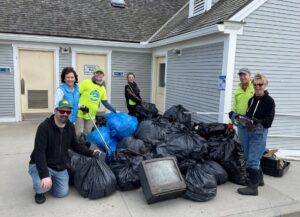HYANNIS – A five-year research project is underway on Cape Cod to study contaminants in drinking water and scientists will provide an update Thursday in Hyannis.
The STEEP Superfund Research Project by Harvard University, University of Rhode Island and the Silent Spring Institute aims to understand how the contaminants, or PFASs, impact the public through well water, determine where they are coming from and find ways to limit exposure.
PFASs are a class of chemicals added to consumer products that make them non-stick, waterproof and stain resistant. They are also used in industrial processes and firefighting foams.
“The annual event is an opportunity for members of the Cape Cod community to connect with the STEEP scientists, learn about research on PFAS, ask questions and voice their concerns,” said Cheryl Osimo.
The event is at Barnstable Town Hall from 10 a.m. to 4 p.m.
Highlights include a screening of the documentary “The Island and the Whales,” which tells the story of a community in Northern Europe where residents are reducing their consumption of whale meat due to health concerns related to PFASs.
An overview of STEEP research and recent advances in detecting PFASs will be provided by Rainer Lohmann, the STEEP program director, and the URI Graduate School of Oceanography.
A discussion will also give details on the contaminants, including where they are from, how they change in the environment and how humans are exposed to them.
An update will also be provided on the private well testing program on Cape Cod.
Over the course of the five-year STEEP research project, researchers will test up to 50 private wells in the region.
The owners of the wells selected will receive a personalized report of the test results. The researchers will also help interpret the results and give them as much information as possible about potential health effects and potential sources of contamination.
PFASs are a broad category of chemicals and polymers with an estimation of more than 3,000.
The chemicals that have been studied have been linked to harmful health effects, including cancer, effects on the immune system, impacts on metabolic and liver function, and certain adverse effects in pregnancy.
Drinking water is a major concern, but exposure can also come from other products, including microwave popcorn or waterproof coating on upholstery or rugs.
























